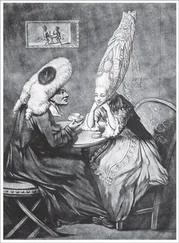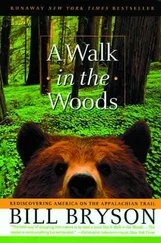Bill Bryson - Notes from a small Island
Здесь есть возможность читать онлайн «Bill Bryson - Notes from a small Island» весь текст электронной книги совершенно бесплатно (целиком полную версию без сокращений). В некоторых случаях можно слушать аудио, скачать через торрент в формате fb2 и присутствует краткое содержание. Жанр: Современная проза, на английском языке. Описание произведения, (предисловие) а так же отзывы посетителей доступны на портале библиотеки ЛибКат.
- Название:Notes from a small Island
- Автор:
- Жанр:
- Год:неизвестен
- ISBN:нет данных
- Рейтинг книги:4 / 5. Голосов: 2
-
Избранное:Добавить в избранное
- Отзывы:
-
Ваша оценка:
- 80
- 1
- 2
- 3
- 4
- 5
Notes from a small Island: краткое содержание, описание и аннотация
Предлагаем к чтению аннотацию, описание, краткое содержание или предисловие (зависит от того, что написал сам автор книги «Notes from a small Island»). Если вы не нашли необходимую информацию о книге — напишите в комментариях, мы постараемся отыскать её.
Notes from a small Island — читать онлайн бесплатно полную книгу (весь текст) целиком
Ниже представлен текст книги, разбитый по страницам. Система сохранения места последней прочитанной страницы, позволяет с удобством читать онлайн бесплатно книгу «Notes from a small Island», без необходимости каждый раз заново искать на чём Вы остановились. Поставьте закладку, и сможете в любой момент перейти на страницу, на которой закончили чтение.
Интервал:
Закладка:
Now I can't possibly write about this sort of thing without making it sound like an episode from The Waltons, so what I'm going to do is distract your attention for a moment from this animated and heartwarming reunion in a Yorkshire Dales kitchen and tell you a true but irrelevant story.
In the early 1980s, I was freelancing a lot in my spare time, principally for airline magazines. I got the idea to do an article on remarkable coincidences and sent off a query letter to one of these publications, which expressed serious interest and promised payment of $500 if published a sum of money I could very handily have done with. But when I came to write the article, I realized that, although I had plenty of information about scientific studies into the probabilities of coincidence, I didn't have nearly enough examples of remarkable coincidences themselves to give the article sufficient zip or to fill 1,500 words of space. So I wrote a letter to the magazine saying I wouldn't be able to deliver and left it on the top of my typewriter to post the next day. Then I dressed myself in respectable clothing and drove to work at The Times.
Now in those days, Philip Howard, the kindly literary editor (I would, of course, say that, in view of his position, but in fact it is true: he's a proper gent), used to hold book sales for the staff a couple of times a year when his office became so filled with review copies that he'd lost his desk. These were always exciting occasions because you could acquire stacks of books for practically nothing. He charged something like 25p for hardbacks and lOp for paperbacks, and then passed the proceeds to the Cirrhosis Foundation or some other charity dear to the hearts of journalists. On this particular day, I arrived at work to find a notice by the lifts announcing a book sale at 4 p.m. It was 3.55, so I dumped my coatat my desk and eagerly hastened to his chamber. The place was already full of mingling people. I stepped into the melee and what should be the very first book my eyes fell on but a paperback called Remarkable True Coincidences. How's that for a remarkable true coincidence? But here's the uncanny thing. I opened it up and found that not only did it offer all the material I could possibly need, but the very first coincidence it discussed concerned a man named Bryson.
I've been telling this story for years in pubs and every time I've finished it, the people to whom I've told it have nodded thoughtfully for quite some time, then turned to each other and said: 'You know, it occurs to me there's another way to get to Barnsley without going anywhere near the M62. You know the Happy Eater roundabout at Guiseley? Well, if you take the second turning there...'
So anyway, I spent three days at home, immersed in the chaos of domestic life, happy as a puppy romping with the little ones, bestowing affection indiscriminately, following my wife from room to room, doing widdles on a sheet of newspaper in the kitchen corner. I cleaned out my rucksack, attended to the mail, strode proprietorially around the garden, savoured the bliss of waking up each morning in my own bed.
I couldn't face the prospect of departing again so soon, so I decided to stay on a bit longer and make a couple of day trips. Thus it was that on the third morning I picked up my good friend and neighbour, the kindly and gifted artist David Cook it is his painting that graces the jacket of this book and went with him for a day's walk through Saltaire and Bingley, his native turf. It was awfully nice to have some company for a change and interesting to see this little corner of Yorkshire through the eyes of someone who had grown up in it.
I had never properly been to Saltaire before and what a splendid surprise it was to me. Saltaire, in case you don't know about it, is a model factory community built by Titus Salt between 1851 and 1876. It is a little difficult to know what to make of old Titus. On the one hand he was one of that unattractive breed of teetotalling, selfrighteous, Godfearing industrialists in which the nineteenth century seemed to specialize a man who didn't want merely to employ his workers but to own them. Workers at his mill were expected to live in his houses, worship in his church, follow his precepts to the letter. He would not allow a pub in the village and so saddled the local park with stern restrictions regarding noise, smoking, the playing of games and other indecorous activities that there was not much fun to be had in it. Workers were allowed to take boats out on the river but only, for some reason, so long as there were never more than four out at any one time. Whether they Uked it or not, in short, they were compelled to be sober, industrious and quiet.
On the other hand, Salt showed a rare degree of enlightenment in terms of social welfare, and there is no question that his employees enjoyed cleaner, healthier, more comfortable living conditions than almost any other industrial workers in the world at that time.
Though it has since been swallowed up by the great sprawl that is the LeedsBradford conurbation, when it was built Saltaire stood in clean, open countryside a vast change from the unhealthy stew of central Bradford, where in the 1850s there were more brothels than churches and not a single yard of covered sewers. From bleak and grimy backtobacks, Salt's workers came to airy, spacious cottages, each with a yard, private gas supply and at least two bedrooms. It must have seemed a very Eden.
On a sloping site overlooking the River Aire and Leeds to Liverpool Canal, Salt built a massive mill known as the Palace of Industry in its day the largest factory in Europe spreading over nine acres and graced with a striking Italianate campanile modelled on that of Santa Maria Gloriosa in Venice. He additionally built a park, a church, an institute for 'conversation, refreshment and education', a hospital, a school and 850 trim and tidy stone houses on a formal grid of cobbled streets, most of them named for Salt's wife and eleven children. The institute was perhaps the most remarkable of these undertakings. Built in the hope of distracting workers from the peril of drink, it contained a gymnasium, a laboratory, a billiards room, a library, a reading room, and a lecture and concert hall. Never before had manual workers been given a more lavish opportunity to better themselves, an opportunity that many scores enthusiastically seized. One James Waddington, an untutored woolsorter, became a world authority on linguistics and a leading light of the Phonetic Society of Great Britain and Ireland.
Today Saltaire remains miraculously intact, though the factory has long since ceased to manufacture cloth and the houses are now privately owned. One floor of the factory contains a wonderful and free permanent exhibition of the works of David Hockney, and the rest is given over to retail space selling the most extraordinary range of designer clothes, posh and stylish housewares, books and arty postcards. It was a kind of miracle to find this place this yuppie heaven inhabiting a forgotten corner of metropolitan Bradford. And yet it seemed to be doing very well. David Cook and I had an unhurried look around the gallery I had never paid much attention to Hockney, but I'll tell you this: the boy can draw then wandered through the streets of former workers' cottages, all of them snug and trim and lovingly preserved, before striking off through Roberts Park to Shipley Glen, a steep wooded dell leading to a sweep of open common land of the sort where you can usually find people exercising their dogs. It looks as if it has been wild and untended for ever, but in fact a century ago this was the site of a hugely successful amusement park one of the world's first.
Among the many attractions were an aerial gondola ride, a big dipper and what was billed as The Largest, Wildest, Steepest Toboggan Slide Ever Erected on Earth'. I've seen pictures of these, filled with ladies with parasols and mustachioed men in stiff collars, and they do actually look pretty exciting, particularly the toboggan ride, which ran for perhaps a quarter of a mile down a formidably steep and perilous hill. One day in 1900, as a earful of smartly dressed tobogganers were being hauled up the hill to be despatched on another hairraising descent, the winch cable snapped, sending the passengers hurtling out of control to a messy but exciting death at the bottom, and that was pretty much the end of the Shipley Glen Amusement Park. Today all that's left of these original thrills is the poky Glen Tramway, which goes up and down a nearby slope in a discreet and sedate fashion, as it has since 1895, but among the tall grass we did find a remnant of old track from the original toboggan ride, which thrilled us mildly.
Читать дальшеИнтервал:
Закладка:
Похожие книги на «Notes from a small Island»
Представляем Вашему вниманию похожие книги на «Notes from a small Island» списком для выбора. Мы отобрали схожую по названию и смыслу литературу в надежде предоставить читателям больше вариантов отыскать новые, интересные, ещё непрочитанные произведения.
Обсуждение, отзывы о книге «Notes from a small Island» и просто собственные мнения читателей. Оставьте ваши комментарии, напишите, что Вы думаете о произведении, его смысле или главных героях. Укажите что конкретно понравилось, а что нет, и почему Вы так считаете.












